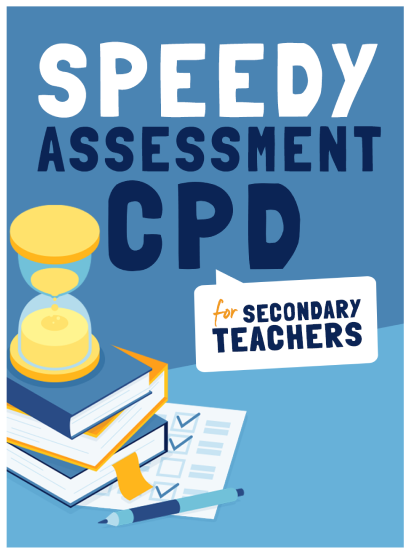Ofsted – Who inspects the inspectors?

Given the increasingly fractious relationship between the profession and Ofsted, Adrian Lyons asks, ‘Quis custodiet ipsos custodes…?’
- by Adrian Lyons

Lead Ofsted inspectors have immense power and responsibility during inspections.
During my time as an HMI, an oft-discussed topic among my colleagues and I was the huge authority we had when in schools – yet this power isn’t entirely unconstrained.
The key way in which inspectors are marshalled is via the inspection handbook. Grading must always be justified against the criteria it sets out. The first question to therefore ask when reading a report for quality assurance purposes is ‘Does the text justify he grade?’
Selective evidence
That said, it’s possible to be highly selective in the evidence recorded, in order to justify the final grade. Ofsted is very hot on ensuring that reports meet a fixed set of writing requirements. In reality, however, for most inspections it’s only the report writing that’s checked, and not the actual gathering of evidence.
The main purpose of Ofsted’s training is to disseminate central messages. This is so that consistency can be maintained in how inspections are carried out.
This results in enormous, centrally-produced slide packs. One very experienced HMI once described in-person Ofsted training to me as ‘A long session where we’re talked at non-stop from 9am to 4pm, with just a quick comfort break at lunchtime.’
Quality assurance
Occasionally, inspections will receive a quality assurance visit from an HMI (or a more senior HMI if it’s an HMI-led inspection). This is usually to ensure that the lead inspector has followed the pre-inspection guidance set out in the inspection handbook.
A quality assurance inspector will check that evidence base is evaluative, and closely follows the methodology for gathering and recording evidence, as set out in the inspection handbook.
They will judge this by looking at the evidence recorded by inspectors, speaking with inspection team members and interviewing the headteacher about the inspection’s progress. They will also check that inspectors are following the prescribed methodology, with the requisite number of ‘deep dives’.
A judgement will then be made as to whether the lead inspector’s ‘Integrity, professionalism and thoroughness strongly reflect Ofsted’s values and code of conduct.’ However, given that key strategic priority for Ofsted at the moment is for ‘Lead inspectors [to] contribute to achieving the 2023/24 corporate volumes’, relatively few such quality assurance visits are actually taking place.
Ofsted’s culture of conformity
Then there are the contracted inspectors. HMI monitors their work largely through checks of their reports and occasional on-site visits.
Again, though, a contracted inspector’s work will be largely assessed on the basis of their report writing alone. Hence the somewhat formulaic nature of Ofsted’s school reports.
If your continued allocation of work depends upon the conformity of your report writing, then there’s little incentive to inject any personalisation.
Ofsted inspectors are effectively on ‘zero hour’ contracts. So the easiest way of managing a given inspector’s poor performance is to simply not allocate them any further work.
“Ofsted inspectors are effectively on ‘zero hour’ contracts”
The primary incentive for inspectors is to thus play it safe – by deciding on your judgement, and then ensuring that your final report only mentions that which supports said judgement. There is no room for nuance.
Working relationships
Of course, the human factor of inspections produces a degree of subjectivity. This is where Ofsted’s command and control approach comes in. Ofsted’s priority is consistency, but professional relationships between inspectors and school staff can be difficult to control.
Ofsted’s code of conduct states, “It is important that inspectors establish and maintain a positive working relationship with providers, based on courteous and professional behaviour. Inspectors will take all reasonable steps to prevent undue anxiety and to minimise stress during the inspection or regulatory activity.”
If that isn’t happening, then filing a post-inspection complaint will be too late. Immediately raise any concerns with the lead inspector, and if you’re still unsuccessful, contact your nearest Ofsted regional office.
Adrian Lyons was one of Her Majesty’s Inspectors between 2005 and 2021. He now works with MATs, teacher training providers and LAs to support education. Find out more at adrianlyonsconsulting.com










